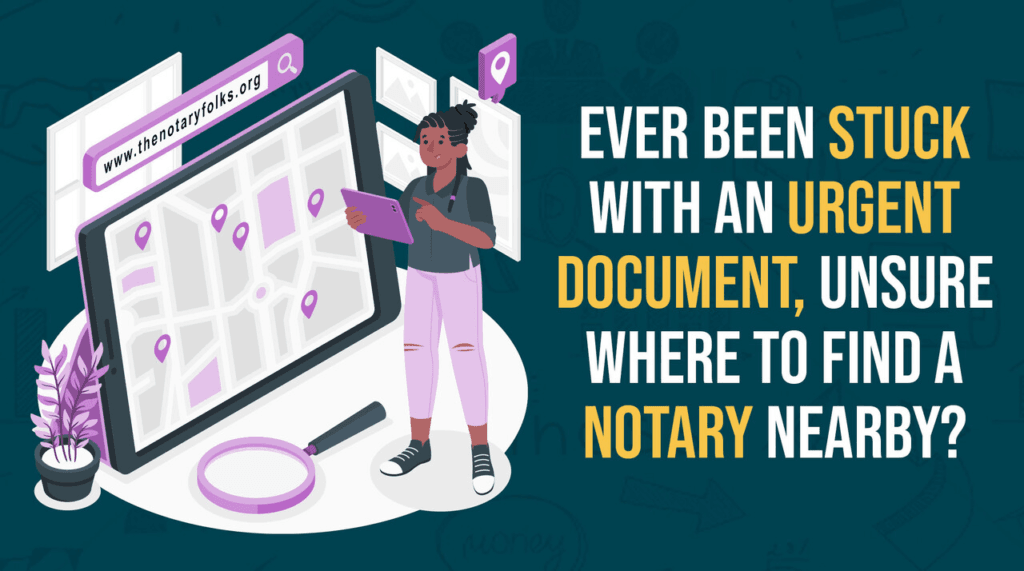
Have you ever wondered how to properly notarize a Power of Attorney (POA)? Don’t stress—we’ve got you covered. Essentially, this important legal process ensures the document’s validity and enforceability. Whether it’s for financial, healthcare, or legal decisions, proper notarization is essential to prevent fraud and confirm authenticity. In this blog, we’ll guide you through the steps of effectively notarizing your POA. By following these steps, you can notarize the POA without any problems and ensure its legal standing. Here’s the breakdown.
The Effective Steps to Notarize Power of Attorney
1. Understand the Basics
A Power of Attorney (POA) is a legal document that allows someone, the “agent,” to act on behalf of another person, the “principal.” People use it for a variety of purposes, such as managing finances, making medical decisions, or handling legal matters.
People might choose to get a POA when:
Making financial decisions: This includes managing bank accounts, paying bills, or handling investments on behalf of the principal.
Making health or medical decisions: A POA can authorize an agent to make decisions regarding medical treatments, including the ability to continue or cease medical services.
Protecting or claiming personal or estate assets: This is crucial for safeguarding property rights or managing an estate, especially when the principal is unavailable or incapacitated.
Operating business interests/transactions: Business owners often use a POA to ensure their business operations continue smoothly in their absence, allowing an agent to make necessary business decisions.
Incorporating a POA into one’s planning can offer peace of mind, ensuring that trusted individuals have the authority to act in important matters when needed.
2. Gather your documents:
When notarizing a power of attorney, it’s crucial to understand that requirements can vary significantly from state to state. Each state has its own set of rules and regulations governing the notarization process, and adhering to these is essential to ensure the document’s legal validity. Furthermore, depending on your state’s regulations, a witness may be required to be present during the notarization process, so it’s important to check and adhere to your specific state’s requirements.
By familiarizing yourself with your state’s notary laws, you can avoid potential legal complications. This vigilance not only helps in executing a valid POA but also safeguards the interests of all parties involved. Always make it a priority to research and comply with your local laws to ensure a smooth and legally sound notarization process.
3. Choose your Notarization Method
You have several options to consider when selecting a notarization method. Firstly, the traditional approach involves visiting a notary public, whom you can typically find at banks, credit unions, law offices, or government offices. Secondly, for added convenience, especially if you cannot travel, a mobile notary can come to your location—you can find these professionals online or through referral services. Lastly, some states permit online notarization, allowing you to complete the process remotely via video conferencing. Be sure to check your state’s laws to determine if online notarization is an option.
4. Prepare for the Notarization
Before proceeding with notarization, it’s crucial to thoroughly review the Power of Attorney document to ensure all details are accurate and complete. Once everything is in order, the notary will fill out a notarization form, which includes essential information such as the principal’s details, the date, and the notary’s signature. Ultimately, this step is vital to finalizing the document and confirming its legal validity.
5. The Notarization Process
The notarization process begins with the notary verifying the principal’s identity using a valid ID. Once the identity is confirmed, the principal will sign the Power of Attorney document in the presence of the notary.
To ensure the principal’s intent, the notary must confirm that:
- The principal appears before them voluntarily, indicating they are not under duress or coercion.
- The principal understands and intends the terms outlined in the Power of Attorney.
Additionally, the notary verifies that the signature on the document indeed belongs to the principal. This dual focus on intent and identity helps protect all parties involved in the transaction, ensuring the POA is both valid and enforceable.
What to Record in a Notary Journal When Notarizing a Power of Attorney
When notarizing a power of attorney, it’s essential to document several key elements in your notary journal. This practice not only helps maintain accurate records but may also be required by law in some states. Here’s what you should include:
Date and Time: Note the exact date and time the notarization took place.
Type of Document: Clearly specify that the document is a power of attorney.
Signer’s Information: Record the full name and address of the individual signing the document.
Identification Details: Include the type of identification presented by the signer, such as a driver’s license or passport, along with its expiration date and unique identification number.
Fee Charged: Indicate any fees collected for the notarization service, even if it’s a nominal amount or none at all.
Signature of the Signer: Have the signer add their signature to your journal entry.
Additional Witnesses: If witnesses are present, record their names and contact information.
Notary’s Signature: Your own signature should be included to authenticate the entry.
By maintaining thorough and organized records, you enhance trust and compliance in your notarial practices. Always check your state’s specific requirements to ensure complete and accurate record-keeping.
Important Tips to Consider
- Choose a reputable notary: Make sure the notary is licensed and bonded.
- Ask questions: Don’t be afraid to ask the notary any questions you have.
- Keep a copy: Make sure you keep a copy of the notarized Power of Attorney document for your records.
- Get familiar with state laws: Notarization laws vary by state. Make sure you understand the specific requirements in your state.
- Follow specific instructions: Some Power of Attorney documents may have specific instructions for notarization. Follow those instructions carefully.
What Information Must Be Included in a Power of Attorney Document?
A power of attorney (POA) document is essential for legally designating someone to make decisions on your behalf. To ensure its validity and effectiveness, it must include specific details:
Full Legal Name of the Principal: Clearly state the principal’s complete legal name to avoid any ambiguity or misrepresentation.
Scope of Authority: Specify the type of authority being granted, such as:
- Financial Authority: Enables the agent to manage banking, investments, taxes, and other financial matters.
- Medical Authority: Allows the agent to make healthcare decisions, access medical records, and consent to treatments.
Agent’s Information: Include the full legal name and contact information of the person being authorized.
Effective Dates: Clearly outline when the authority begins and, if applicable, when it ends.
Specific Powers: Detail any limitations or specific decisions the agent can or cannot make.
Signatures: Ensure the document is signed by the principal, the agent, and witnesses, if required.
Notarization: Check if notarization is necessary in your jurisdiction to make the document legally binding.
Incorporating these elements will help in crafting a comprehensive and legally sound power of attorney document.
Frequently Asked Questions (FAQs)
1. Can I notarize a Power of Attorney online?
Yes, many states allow online notarization. Ensure you use a reputable service, and all parties are present via video conference.
2. Does a Power of Attorney need to be notarized?
While notarization may not always be legally required, we highly recommend it to ensure the document’s validity and prevent disputes.
3. What if the principal is incapacitated?
If the principal is incapacitated, they cannot legally sign the POA. It’s crucial to establish the POA while the principal is still competent.
4. How long does a notarized Power of Attorney last?
The duration depends on the terms outlined in the document. Typically, a general POA remains effective until revoked, whereas a durable POA can last through the principal’s incapacity.
5. Can I revoke a Power of Attorney after it has been notarized?
Yes, you can revoke a POA at any time, as long as the principal remains competent. However, ensure you document the revocation in writing, and inform all relevant parties.
Conclusion
Remember, notarizing a Power of Attorney is a serious matter. However, by following these steps and choosing a reputable notary, you can ensure your document is legally valid and secure. In conclusion, by notarizing the Power of Attorney properly, all parties benefit from protection as well as legal validity, providing peace of mind.
👉Ready to Secure Your Power of Attorney?
Don’t leave the validity of your important documents to chance. Ensure your Power of Attorney is notarized correctly and stands up to any scrutiny. Whether you choose a traditional, mobile, or online notary, taking these steps will safeguard your interests and provide peace of mind.
Schedule an appointment with us and lets discuss your notarization needs.
Protect your rights and your future—get started now!


